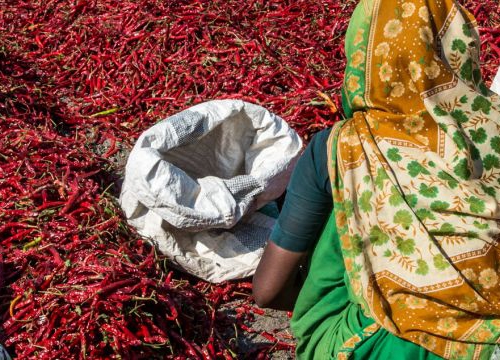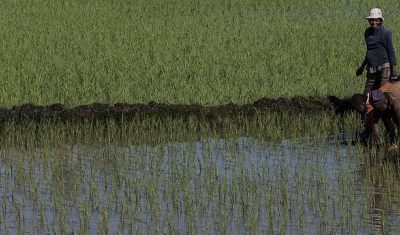Article Examines How UN Human Rights Mechanisms Address Gendered Inequalities in Access to and Rights over Food and Land


Asian Development Bank
17 January 2019
The article Engendering the Right to Food? International Human Rights Law, Food Security and the Rural Woman, written by our Senior Research Fellow Dr Joanna Bourke Martignoni, examines how United Nations (UN) human rights mechanisms address the role and status of rural women in the context of food security and the rights to food and land.
Published in a Special Issue of the Transnational Legal Theory Journal, it builds on research conducted within the framework of the DEMETER project, co-coordinated by the Geneva Academy, the Gender Centre at the Graduate Institute of International and Development Studies, the Institute of Statistical, Social and Economic Research at the University of Ghana and the Royal University of Law and Economics in Cambodia.
‘The Geneva Academy is taking the lead on the international human rights component of the research. This article critically addresses the way in which the international human rights mechanisms are conceptualizing and proposing solutions to gendered inequalities in the realization of the rights to food and land’ underlines Dr Joanna Bourke Martignoni.

Narrow Focus on Customary Law and Lack of Consideration for Global Economic Relations and Gendered Power Structures
The paper starts by examining the drafting history of Article 14 of the UN Convention on the Elimination of All Forms of Discrimination against Women (CEDAW) along with case studies from various countries – including the DEMETER data from Cambodia and Ghana – and UN mechanisms such as the Special Rapporteur on the Right to Food and the treaty bodies.
Taking a historical perspective helps to explain the origins of Article 14 of CEDAW as well as the ways in which gendered inequalities in agricultural employment conditions, food security and land rights led to a greater focus on the 'rural woman' in international human rights law.
The research critically examines the way in which UN human rights mechanisms, CEDAW in particular, attempt to explain and offer remedies for gendered inequalities in access to and rights over food and land.
‘By focusing almost exclusively on customary law as a barrier to the realization of these rights, these mechanisms obscure the influence of other structural forms of gender inequality’ explains Dr Joanna Bourke Martignoni.
‘This means that the solutions offered frequently fail to consider the ways in which global economic relations shape property rights and gendered power structures at the local level or take into account the positive role that local norms, actors and practices could potentially play in ensuring food security for all’ she adds.
The Need to Take a More Nuanced, Contextualized and Evidence-Based Approach
The article recommends that human rights mechanisms take a more nuanced, contextualized and evidence-based approach in their analysis of complex gendered power relations within rural communities.














